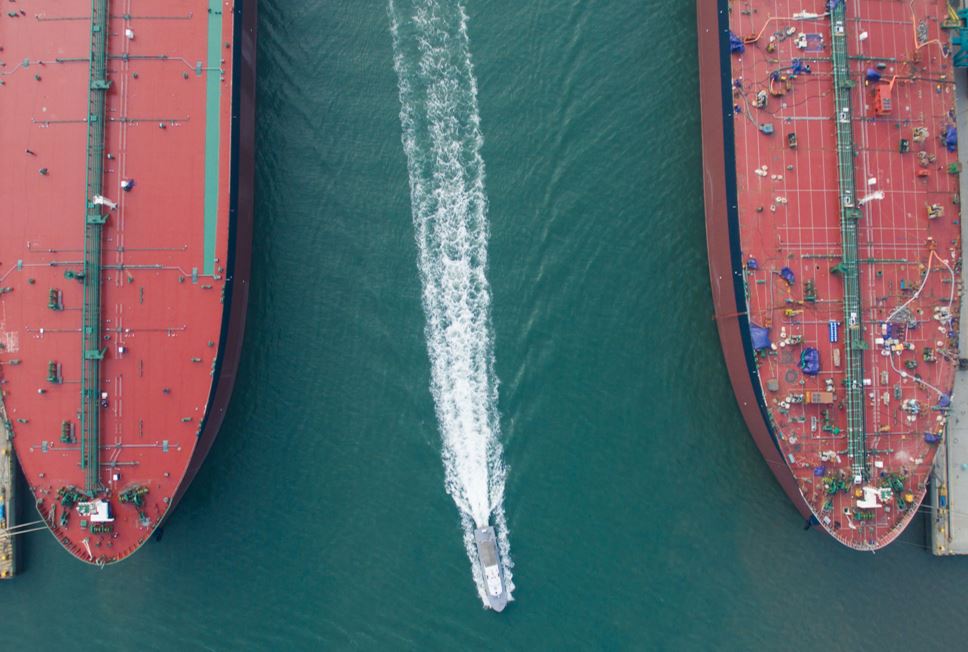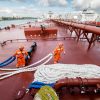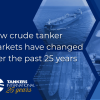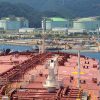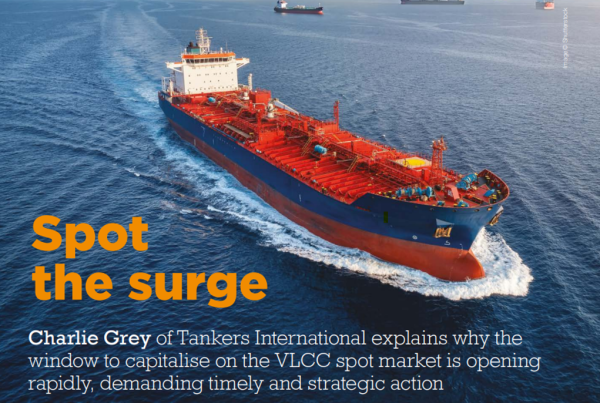Editorial published in Splash 247 on 19 April 2022
Matthew Smith from Tankers International makes the green case for clubbing together.
As consumers and financiers have better understood the pervasive nature of emissions, measuring, monitoring and ultimately reducing the carbon footprint of every step in the supply chain has become “table stakes” for end-users of oil and public stakeholders who drive regulators.
Virtually every large company connected to the energy industry today has an environmental policy that covers emissions throughout their logistics chain. The supermajors and national oil companies especially have implemented ambitious policies, and emissions are now a real factor in their chartering decisions.
This has radically changed shipping’s decarbonisation dynamic. The most visible sign of this shift is increased regulation, as the industry faces a series of incoming new landmark rules. However, this is coupled with a dramatic change in customer demand – whereby demand-side pressure for lower carbon solution is creating a real commercial advantage for those who go beyond minimum standards.
Yet fundamentally, zero-carbon ship technology and investments are still in their infancy and cannot be implemented overnight. This creates uncertainty for shipowners, and a difficult challenge in planning for installing new technology, as well as a challenge for charterers in search of climate conscious options today. It is critically important that the industry gets the support it needs; Tankers International’s pooling model is uniquely placed to play this role.
The decarbonisation dynamic
Shipping’s first major global decarbonisation regulations are set to enter into force on the first of January next year. The Energy Efficiency Existing Ship Index (EEXI) and Carbon Intensity Indicator (CII) regulations will target a vessel’s design and measure its operational efficiency next to set standards.
If a vessel is not able to demonstrate its EEXI or CII credentials, it may be restricted in trading options. This is making carbon efficiency a priority for even the most resistant shipowners and will make it easier for charterers to benchmark the carbon intensity of any voyage.
Complying with decarbonisation rules will inevitably take up operational resources from shipowners. EEXI and CII rules will require constant tracking and, for many, specialist software.
The EU is expected to implement even more robust rules soon, with plans to add shipping to the EU Emissions Trading Scheme currently progressing. Those plans would explicitly tie carbon to costs and impact operational resources. These rules will aid shipping’s transition to net-zero, and could arguably create even wider-reaching obligations.
Pooling as an enabler
The pooling model supports shipowners by moving most of these operational obligations away from the shipowner to the pool operator. For example, the Tankers International VLCC Pool will assist participating shipowners in calculating and monitoring efficiency to help optimise ships for CII rules and will support in meeting EU Emissions Trading Scheme requirements.
Clearly, meeting environmental goals will pose cash flow challenges – especially when targeting above the minimum ambition. Pooling with Tankers International provides shipowners with the ability to better optimise voyage selection as they are less constrained by cash flow. Vessels operating in a pool can more easily take advantage of longer voyages that often represent better freight rates.
An owner outside of a pool will receive income only when a vessel has discharged, leaving them to cover expenses for bunkers and port calls in advance. A pool will take care of these expenses, while ensuring consistent cash flow to the shipowner through revenue sharing between all the pool vessels.
This regular income can make it easier to plan for investment-heavy emissions reduction technologies, while increasing earnings. At Tankers International we provide technical support and encourage inter-owner knowledge sharing by offering regular technical forums to give insights on new technologies – and help shape purchasing decisions and best practice.
Yet, pooling can benefit the industry beyond shipowners. Charterers are looking for green solutions today, while work on zero-carbon shipping will take time. Climate compensation can offer an immediate solution.
Tankers International’s Climate Compensation Voyage Scheme was recently launched in partnership with Vertree – a subsidiary of longstanding pool partner Hartree. The scheme allows us to offer tailored, voyage specific climate compensation packages alongside normal quotes.
The scheme uses scientifically recognised methodologies and proprietary data to calculate an emissions baseline on a per voyage, monthly or annual basis. This allows charterers to choose from a range of nature-based options to offset the carbon, tailored to price, geographies and impact targets. Where climate compensation is not a total solution to climate change on its own, it can play an immediate and meaningful contribution.
The scale of the decarbonisation challenge is set to stretch many shipowners’ bandwidth and cash flow close to breaking point, while many parts of the industry are already facing pressure to deliver. It is critical that tanker owners maximise the support that is available to them – from technical, to practical, to cash flow – and that charterers are provided with more options. Pools are crucial tools that can help drive solutions today.


